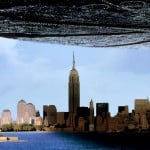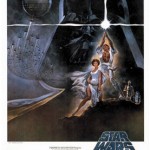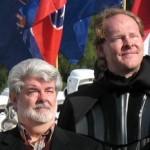 In 1996’s Independence Day, President Whitmore, played by Bill Pullman, definitively declared that “the question of whether or not we’re alone in the universe has been answered.” This line was both chilling and gripping because, well, the aliens started blowing stuff up. A few days ago, however, Pullman’s famous cinematic quote was nearly repeated when NASA astronomer Kevin Hand stated, “I think in the next twenty years, we will find out we are not alone in the universe.” As if that wasn’t a bold enough proclamation, Matt Mountain, Director of the Space Telescope Science Institute in Baltimore, MD, recently claimed we are very close to finding, as he puts it, “Earth 2.0.”
In 1996’s Independence Day, President Whitmore, played by Bill Pullman, definitively declared that “the question of whether or not we’re alone in the universe has been answered.” This line was both chilling and gripping because, well, the aliens started blowing stuff up. A few days ago, however, Pullman’s famous cinematic quote was nearly repeated when NASA astronomer Kevin Hand stated, “I think in the next twenty years, we will find out we are not alone in the universe.” As if that wasn’t a bold enough proclamation, Matt Mountain, Director of the Space Telescope Science Institute in Baltimore, MD, recently claimed we are very close to finding, as he puts it, “Earth 2.0.”
Imagine that for a second. Another planet just like ours, or at least with similar living conditions. Who knows what kind of life a place like that could spawn? Perhaps nothing more than a handful of cells. Perhaps some creepy, crawly critters. Or perhaps some intelligent life that’s not too far off from the humans that walk this planet. (Granted, the definition of intelligent human life is highly subjective).
The discovery of a sister planet could have tremendous implications for how we treat each other and our world. We spend so much time and energy discussing foreign policy and international relations. We talk about ending racism, gender discrimination, and hatred in general. We chatter on about making sure everyone has enough to eat on a planet with more than enough food to go around. And we debate endlessly about proper healthcare and easy access to medicine for everyone.
Yet, we fail at all of these. Miserably.
Why? Because although we’re a species made up of one race of people, we’ve chosen to divide ourselves into an incalculable number of hostile factions. Religious, political, racial, socio-economical. If you can come up with a category, there are groups of people willing to defend not only its cause, but also its numerous subgroups. Simply put, we humans are a species of us vs. them. And nobody wins.
In May 2014, Pope Francis made waves when he said he’d be willing to baptize aliens, should they come to our planet seeking forgiveness. This begs the question as to what beings from another planet might believe about God, creation, sin, redemption, and the afterlife. Christians have, historically, had a hard time with the idea of alien life given the Bible’s claim that men and women are made in God’s image. Fair enough. But what’s wrong with a worldview in which God also created beings on other planets that are just as smart as humans (or even smarter); a God who then desires to see them one day meet and interact for the mutual benefit of both species? Last I checked, the Bible doesn’t appear to have anything to say on that subject, nor do the core tenants of any of the other major religions of the world.
It remains to be seen whether or not citizens of a possible Earth 2.0 would even give the subject of religion or the divine any sort of conscious thought. And if so, would those beliefs be as splintered as they are amongst us? Would there be those within their population that mirror our Hitlers? Our Gandhis? Our Devils? Our Christs? Would they even understand the concept of war? Or might war be all they know?
 While growing up, I played a lot of video games. Sometimes, I started losing so badly that the only remedy was to hit the trusty reset button and start fresh again. The discovery of Earth 2.0 could very well be the reset button humanity needs to bring us all together in an unprecedented mulligan. And no, I’m not talking about looting, pillaging, and sucking dry the resources of another life-sustaining planet. After the job we’ve done thus far in taking care of our own world, reaching our grubby little hands into another one would be the height of intergalactic arrogance.
While growing up, I played a lot of video games. Sometimes, I started losing so badly that the only remedy was to hit the trusty reset button and start fresh again. The discovery of Earth 2.0 could very well be the reset button humanity needs to bring us all together in an unprecedented mulligan. And no, I’m not talking about looting, pillaging, and sucking dry the resources of another life-sustaining planet. After the job we’ve done thus far in taking care of our own world, reaching our grubby little hands into another one would be the height of intergalactic arrogance.
Imagine, instead, the lessons we could learn if we got the chance to communicate with a highly intelligent extraterrestrial species, perhaps one even more sophisticated than humans. At best, we could gain a clear example of a global culture that thrives on peace. At worst, we could use the illustration of a poorly run alien civilization as a means to look in our own mirrors and finally fix what we’ve been unwilling to mend and repair since the dawn of our species.
Alan Atchison is a Contributing Writer to The Rogue. He is a Senior Publications Editor at the Center for the Advanced Study of India (University of Pennsylvania), where he also earned a Masters of Liberal Arts in Creative Writing. He lives in Philadelphia, PA with his wife and two daughters. Follow him on Twitter and Instagram.











